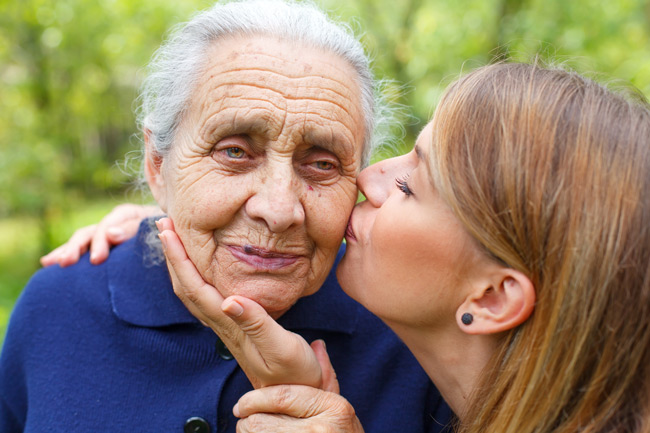5 Ways to Help Your Loved One Adjust to Memory Care

5 Ways to Help Your Loved One Adjust to Memory Care
Moving to a senior care facility in San Antonio can be difficult for any aging senior, but for those living with a neurocognitive condition like dementia, the change may be even more fraught with emotion. For seniors with dementia, feelings of confusion and disorientation are common, and a new and unfamiliar memory care environment may feel particularly overwhelming.
Your loved one will likely have a lot of questions, and may be concerned about being left alone or abandoned in their new home. Once they have moved in, they might be unsure about why they are there, and what it means for them going forward.
Thankfully, there are a whole host of things that can be done to help your loved one adjust to memory care in San Antonio more swiftly, allowing them to feel happy and settled as quickly as possible. Here are 5 vital things you can do to help your parent or loved one adapt effectively.
- Visit the memory care community before moving in. Paying a number of visits to your loved one’s new memory care facility in the weeks leading up to their move is an excellent way to make sure they are as well prepared as possible. Gradually getting your loved one used to the facility’s layout, while allowing them to make friends and orientate themselves may help reduce confusion when the time comes to move in permanently. Many memory care communities allow new residents and families to pay regular and gradually increasing visits to assist in the orientation process. You may wish to inquire about joining a class or activity your loved one will enjoy during these visits; not only will this help them associate the community with positive experiences, but it may also allow them to form friendships with likeminded individuals.
- Be smart about your visits. In the initial days, weeks and even months following a move to memory care, visitation can be a little tricky. While frequent visits may be an excellent way to relieve fears of abandonment and show your parent or relative that you will continue to support them, they may initially be difficult to navigate. Ask staff members how your loved one reacts to your visits or communications – are they more settled afterwards, or do they become agitated, hostile or upset? During your visits, try to engage in community activities together, encouraging your loved one to socialize and reap the full benefits of life in memory care. When the time comes to leave, it may be beneficial to make sure your parent or loved one is engaged in an activity, or socializing with fellow residents or staff members. It might also be useful to plan visits for the morning; leaving in the late afternoon may coincide with sundowning syndrome, making agitation and distress more likely.
- Keep their space as familiar as possible. Moving to memory care can be disorientating for aging seniors with dementia, so keeping things as familiar as possible is usually a good idea. Though many families want to provide new furniture and decorations for their loved one’s space to make their new home as comfortable as possible, this can be counterproductive. In fact, aging seniors with dementia typically respond better to familiar items moved from their old home. Transfer items of furniture like bedside cabinets and curtains, and decorations like artwork and photographs to their memory care living space and, if possible, arrange these in a way that is familiar to your loved one. If space is limited, something as simple as storing their clothes in their preferred way, or supplying them with items like their favorite book, photo album, puzzle or knitting set may help settle anxieties.
- Inform caregivers of their routine. For aging seniors with dementia, routine is vitally important. Having a regular daily routine can help seniors remain as independent as possible for longer, and seeing familiar faces, places, activities, foods and drinks at the right time each day can be an effective grounding technique to reduce confusion and distress. While learning and short-term memory often start to decline shortly after the onset of dementia, habits and routines may be more deeply engrained. When your loved one moves to memory care, don’t be afraid to inform their professional caregivers of any preferred daily routines, habits or rituals. Perhaps they have a specific bedtime or evening routine, or it could be something as simple as that they like to have a cup of coffee at 11am each day. Inform management when their care plan is being devised so a note can be taken, too – because those small daily habits can truly make the world of difference.
- Answer their questions concisely. If an aging senior doesn’t understand why they have to move to memory care, the process can be particularly difficult. They may be feeling confused, upset or anxious about the transition, or fearing the unknown. Think about how you can answer their questions as concisely, reassuringly and informatively as possible.For example, if your loved one becomes anxious and asks where they are, you might say “you’re in your new home, you’re safe here.” Of course, the best response will vary for each individual, and you know what language your loved one reacts to best. The most important thing is to ensure the whole family know how to respond to their questions in a way that is as reassuring and easily understandable as possible.
In any move to senior care, knowing how to help a loved one adjust is absolutely vital, and when it comes to memory care, there’s a little more to consider. For more information on how we help seniors and their family caregivers adjust to a new lifestyle in memory care, give us a call to arrange a personalized tour.
- Thank You, Family Caregivers - November 22, 2022
- Fall Activities for Seniors with Dementia - October 28, 2022
- 7 Benefits of Memory Care for Seniors and Their Loved ones - September 26, 2022
